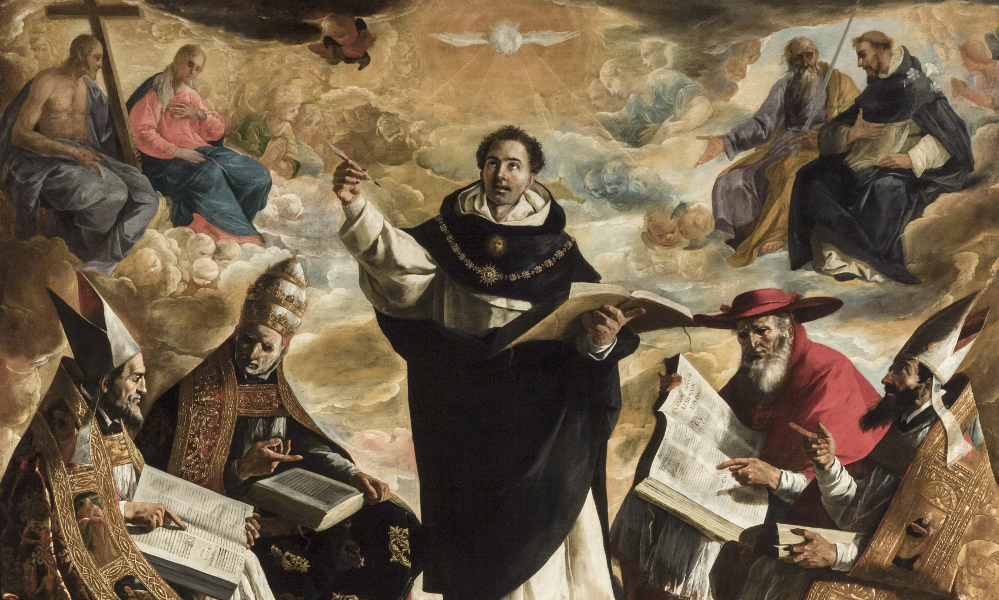There can be a temptation to think of prayer as something isolated, something I say to God, who then takes my prayers and makes them useful. Do I “send my prayers away” to God as if I’m mailing a letter to a distant acquaintance? Is God unaware of my heart’s desires unless I tell him? Another subtle temptation comes from too much self-focus. Does prayer start with me? Is God dependent on my initiative for prayer?
Take courage—God loves us and works in our lives even when we don’t realize it. When we pray, God works with us and through us, and he draws us into his love: his love for us and our love for him. To better understand this mystery of prayer, let us look at three realities contained in prayer.
First: God’s Providence
When observing how God works providentially through our prayers, Saint Thomas Aquinas turns to today’s patron, Saint Gregory the Great: “For we pray not that we may change the Divine disposition, but that we may impetrate that which God has disposed to be fulfilled by our prayers, in other words ‘that by asking, men may deserve to receive what Almighty God from eternity has disposed to give.’ ” It is God who initiates the movement of our hearts to prayer. Our prayers start from God. He desires us to be in union with him, and to that end, he prompts us to turn to him in prayer. God moves us to pray in order to draw us to himself.
Second: God’s Goodness
Something in us innately understands that prayer is good. Prayer helps us find calm during the storms of life by bringing us the peace of Jesus amid our anxieties. “Have no anxiety at all, but in everything, by prayer and petition, with thanksgiving, make your requests known to God. Then the peace of God that surpasses all understanding will guard your hearts and minds in Christ Jesus” (Phil 4:6-7). We sense that the goodness we find in prayer comes from someone else, for we know that “all good giving and every perfect gift is from above, coming down from the Father of lights” (Jas 1:17). Through prayer, we encounter God’s goodness who waits to give us the good things we ask for in prayer.
Third: Our Free Response
“We love because he first loved us” (1 Jn 4:19). All of our love is a response to God’s love for us. When we talk to God in prayer, it is because he initiated the conversation with us. In turn, we freely choose to respond to God’s prompting by offering him our prayers.
Furthermore, in cooperating with God’s grace, we can even act as instruments for the conversion of sinners and the perseverance of the just. An example of this can be found in Jesus’ healing the paralytic: “When Jesus saw their faith, he said to the paralytic, ‘Son, your sins are forgiven’ ” (Mark 2:5). Just as he worked through the paralytic’s friends’ faith to heal the paralytic, so God works through our prayers to save others.
We can think of a prayer as a kind of “spiritual vessel” that God fills to the brim. In it, God works out his providence in our lives by moving us to pray, he fills us with his goodness, and he turns us into instruments for our own salvation and the salvation of other people. The three parts of this reflection merely scratch the surface of the infinite treasures found in prayer. With Saint Thomas, then, let us pray that we better understand the depths of this mystery.
Grant me, O Lord my God,
a mind to know you,
a heart to seek you,
wisdom to find you,
conduct pleasing to you,
faithful perseverance in waiting for you,
and a hope of finally embracing you.
Amen.
✠
Image: Francisco de Zurbarán, The Apotheosis of St. Thomas of Aquino







